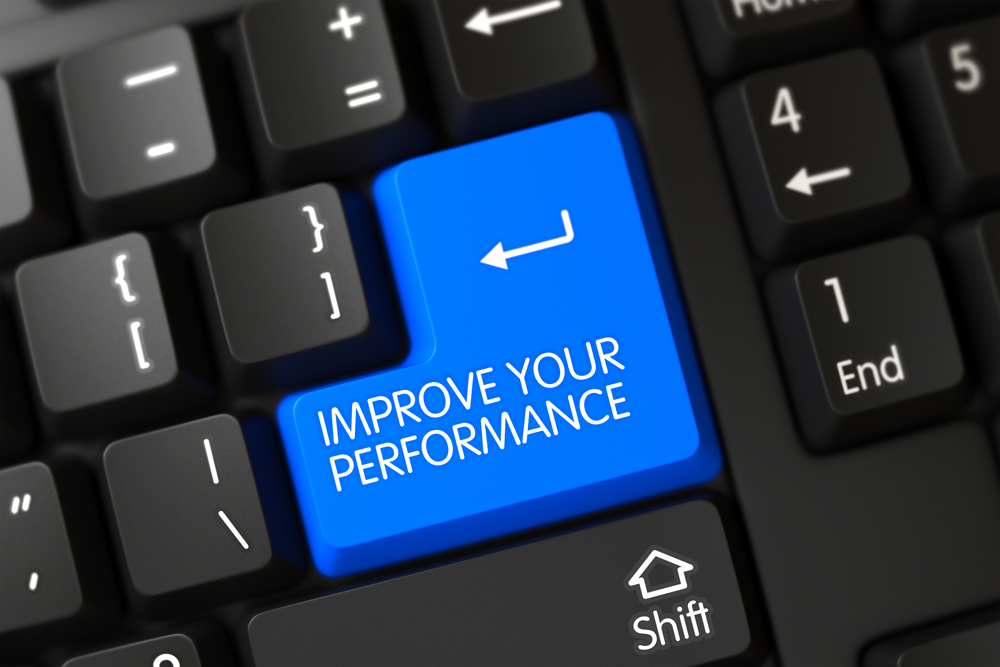Computers are not made to last forever, but they are made to last longer than you might think. Just because your PC takes a little bit longer to load web pages or launch apps doesn’t mean that all hope is lost. It also doesn’t mean that you have to upgrade to a higher-tier internet package. Still, faster speeds might affect browsing and streaming, but if you notice an overall change of pace in your computer, it is most likely your PC’s performance that needs to be improved.
Today, we will go over how to improve computer performance in Windows 10 and newer by checking key components to your PC. Don’t forget that plenty of factors contribute to PC speed and performance, so it may be a good idea to go down the following list and consider some of our tips before upgrading to a new computer.
Improve Computer Performance
So, what’s causing your PC’s slow speeds and less-than-ideal performance? It can be any number of things because there are actually many factors that may be contributing to your computer performance. If you aren’t sure where to begin, you can start by doing some research on your computer’s specs. If you have low RAM storage or a poor network connection, this can significantly impact your computer’s speed. The same factors can cause lag and slow speeds on even the best, top-of-the-line PCs, so it’s essential to do your research before investing in a PC.
If you want to know how to improve computer performance in Windows 10 (or any recent version of Windows), here are some things you should think about before buying or upgrading to a new PC:
- Make sure you are using the proper CPU/processor
The central processing unit (CPU) or processor is one of the most critical elements of your PC. It is often referred to as the brain of your PC because it processes all data and instructions of your computer.Specific processors work more efficiently than others because of the number of cores that are present in your PC. Cores are typically chosen based on how you use your computer.For example, a basic PC or laptop for daily use (i.e., school, work) could run smoothly with a dual-core processor. However, if you use your PC for more serious programs requiring more speed, you would want to choose a processor with more cores. The proper CPU will make your PC much faster and more efficient, and similarly, having the wrong processor for your needs can slow down your computer.
- Don’t blame performance on just internet speed
Internet speeds will determine how fast your computer can download files or data from the web and how fast information is uploaded from your computer to the internet (download and upload speed, respectively).Despite marketing efforts and general misconceptions about speed, overall speed and performance are not solely determined by your internet speed. Yes, slow internet speeds will affect online streaming or browsing, but generally speaking, it will not significantly impact overall performance.
You can always test this theory by temporarily upgrading your internet speed. If speed hasn’t changed, then it is most likely something else going on in your computer.
- Take a look at the processor speed of your PC
If you want an actual value of how fast your computer runs, look at the processor speed. It is also referred to as clock rate or clock speed. The speed is measured in megahertz (MHz), and gigahertz (GHz), and the specified value is of the cycles per second that a central processor (CPU) goes through.Also called clock speed or clock rate, processor speed is the number of cycles per second in which a CPU can process instructions. A good baseline value is to ensure that your processor speed is above 1.5GHz (if you are using Windows). Anything below that may cause slower speeds.
- Consider increasing RAM
Random access memory, or RAM, refers to the primary storage within your computer. It can be thought of as short-term memory or storage within your PC (for comparison, hard-drive storage would be considered long-term) and is much faster to read and write from when compared to the other storage devices in your computer. The more RAM your computer has, the quicker it opens, runs, and switches between programs. If you want to see a significant increase in speed and performance, consider adding more RAM to your computer. - Clean your computer and hard drive
Another component that plays a critical role in speed and performance is your PC’s hard drive. You can check how much space you have left on your hard drive, but you will definitely notice a decline in overall performance and speed if it’s at capacity or even near it. One way to increase computer performance is by cleaning out your hard drive or by clearing old and unnecessary files and programs. Suppose you do not have the patience or capacity to do this manually. In that case, there are plenty of online PC cleaners available that will do all the hard work for you and significantly improve speed and performance in Windows 10.
At MyCleanPC, we are here to help you get your PC running the way it should and when you have exhausted all other options or simply wish to be proactive with a newer PC, then having PC tuneup software can be one of the best tips on how to improve computer performance in Windows 10.

